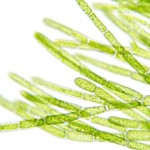 I was recently asked to write an article for the vegan, raw foods company, inSpiral, about the importance of an EPA and DHA supplement for vegans. They wanted to get across the key message that omega 3 is an umbrella term covering many essential fatty acids, but that these acids are not all of equal importance to our health.
I was recently asked to write an article for the vegan, raw foods company, inSpiral, about the importance of an EPA and DHA supplement for vegans. They wanted to get across the key message that omega 3 is an umbrella term covering many essential fatty acids, but that these acids are not all of equal importance to our health.
ALA (alpha-linolenic acid) is found in foods such as chia and flax seeds but there are concerns around to what extent the body can convert this acid into the beneficial EPA (Eicosapentaenoic acid) and DHA (docosahexaenoic acid). Read more…

[break]

Nice article. thank you for posting it. we need to get into the depth of such knowledge, especially as you said, there is a blanket advice about Omega3. I am a vegetarian and I would like to get EPA and DHA from foods, how can I do that?
Many thanks
Hi Niraj,
I’m glad this was helpful!
It is very difficult to get EPA and DHA from foods, this is the reason why inSpiral wanted to sell a supplement. Most EPA/DHA supplements on the market are from fish oil but there are a few made from algae.
Other algae like spirulina or chorella may contain some, but have a look on the packet to see the amounts. If you consider that it takes two capsules full of algae oil to provide a therapeutic dose then it seems obvious that a teaspoon or two of spirulina or chorella which contain protein and many other nutrients will be highly likely to only contain trace amounts of EPA / DHA.
Also if you buy a different algae oil look on the back to see how much omega 3 and specifically how much EPA it contains. Some algae oils contain very little or mainly DHA. This is another reason why inSpiral have chosen to sell the Opti3 brand. They carefully considered the options available first.
I hope this is helpful Niraj, thanks for your comment.
Great article. I know there are only 3 with each playing a different role in the body, from reducing inflammation to aiding metabolism. There a numerous sources for n-3 long chain fatty acids, my personally favorite being chia seeds. But I usually supplement with algae derived supplements developed by nuique. The health benefits are hard to ignore though especially on children. Read an article of a study by Oxford university on the correlation between n-3 intake and cognitive performance, have a look The DHA (Docosahexaenoic Acid) Oxford
Learning And Behaviour (DOLAB) Study